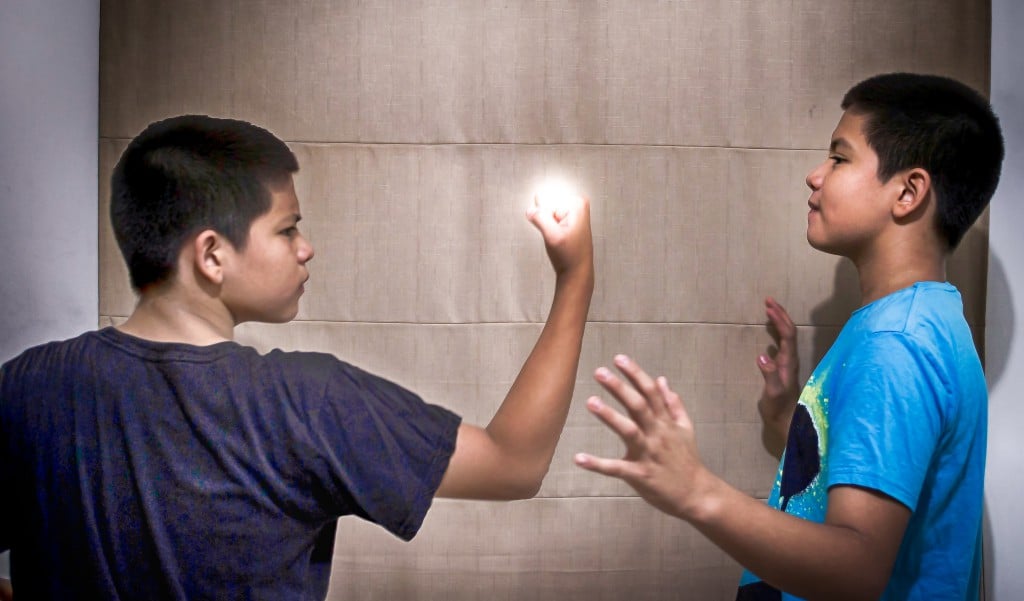5 Things You Should Never Ever Do in Taiwan
Most travel guides have etiquette sections for Asia-bound travelers and would-be expats, and most of those contain situationally relevant advice for Taiwan, e.g.: Don’t stick your chopsticks standing upright in a bowl of rice, ostensibly because it resembles the incense burned at Buddhist temples. Never use your hands to beckon someone, and never gift clocks, umbrellas, or flowers – all of which carry the weight of some traditional superstition or legitimate cultural taboo. Or: Always remove your shoes when entering someone’s house.
To be honest, as a foreigner, if you were to commit one of the above faux pas in Taiwan, you’d be given a free pass. Nobody really expects you to know the ins and outs of Taiwanese etiquette. It’s nice if you do, but not a big deal if you don’t. Besides, South East Asian cultures tend to avoid personal confrontation, and Taiwan is no exception. Thus, nobody is going to call you out and risk losing face over an ill-informed foreigner. It’s just never done.
The following ‘Never Ever Dos’ in Taiwan can have serious and in some cases, lasting consequences. To be blunt, these things matter.
Photo via Flickr
1. Tell somebody to “’F-word’ off” and/or flip the bird (the universal offensive gesture)
This is rule number one with a bullet and dangerously under-publicized in travel guides.
Unusual Taiwanese legal fact(s): it’s illegal to insult someone in public. Taiwan’s Criminal Code Articles 309-314 cover slander, defamation, libel, and injury to personal reputation. Article 309 specifically states: “A person who publicly insults another shall be punished with detention or a fine of not more than TWD $10,000 (US$330).”
If you’re thinking that sounds amusing and frivolous, think again. For the record, I have been jammed with Article 309 – twice – and both times my omnipotent benefactor used his guānxi* to make it go away, i.e. I had to pay the “victims” to drop the charges. Both times I used the f-word, as in, go f-word yourself.
*guānxi (關係) = personal connections + social status. The Chinese have been networking since time immemorial, using a concept known as guānxi, which simply means “relations”, or as I prefer to say, “You scratch my back, I’ll scratch yours. The Taiwanese take guānxi very seriously.
Now, phrases like “screw off” or “go pound some sand” aren’t considered offensive, mainly because nobody knows what they mean. Everybody knows the f-word, and everybody knows it’s not nice – that’s the important part. However, it doesn’t really matter what you’re saying if you’ve already lost your cool – there’s going to be trouble. We’ll get to that in a minute.
Anyway, for whatever reason, I personally blame the prevalence of Hollywood movies. There is a heightened sensitivity to the f-word in particular. In fact, you shouldn’t use Western obscenities in public at all, unless you don’t mind having people stare at you.
The s-word is OK, for whatever reason, and I hear it all the time – from locals and expats. It’s on par with the Chinese gàn (幹), which means basically the same thing: shoot, darn, dang it, etc. Much to my amusement, gàn almost always generates a smile and, “Hey, your Chinese is getting pretty good!” Anyway, avoid the f-word. End of.
2. Cause someone to lose face
If you don’t do any homework whatsoever prior to arrival, please do yourself the solid favor of familiarizing yourself with the concept of face in Asian society. This entire article could be about face.
The Chinese and English concepts of “face” are similar but differ in several semantic areas. The main difference is in English you can lose face, gain face, or save face. Chinese has many “gain/lose face” collocations, but none literally meaning “save face.” Though as a foreigner, you may be put in situations where you are helping someone gain face simply by association (i.e. your presence), more often than not, you’re going to be in a position to cause someone to lose face. Here are examples of helping someone maintain face:
– Don’t appear happy to leave (quit) a job, regardless of consequences
– Don’t single people out for criticism in public
– Don’t refuse to partake of an offered beverage from an acquaintance in social settings, even if you don’t drink alcohol
– Don’t get visibly angry or shout obscenities in public under any circumstances
– Don’t refuse a gift of any kind
– Don’t tell people how you’re really feeling about a particularly bad situation
3. Get in a fight

Photo via Flickr
Actually, public fighting in Taiwan is pretty rare to begin with, but mano a mano, or hand-to-hand combat between two parties is unheard of outside of a boxing gym. When, for instance, two guys have a beef, they each call up all their friends and essentially, whoever draws the biggest crowd wins the brawl. Moreover, most Taiwanese fights bear a closer resemblance to a 25-on-1 beatdown. In other words, Taiwanese guys don’t fight fair. If you pick a fight with a local, be prepare to fight all of his friends – and not one at a time, either. Odds are they’ll be armed with baseball bats, too.
I’ve witnessed a handful of intra-cultural fights and the foreign guy always ends up on the ground like a sack of tomatoes dropped from a great height.
4. Cross the street without looking both ways

Photo via Pixabay
I’m aware of the mundane suggestion that Taiwanese traffic is dangerous. Relatively speaking, it’s not the worst I’ve ever seen. However, there are two really big things for pedestrians to remember in Taiwan:
First, pedestrians do not necessarily have the right of way, even in well-marked crosswalks, with the WALK signal in their favor. Second, any paved surface within range of the street is considered an extension of the roadway itself, c.g. Sidewalks, pedestrian lanes. Literally, any paved surface. Combine those two and you have hell on earth for people on foot. The bottom line is: watch where you’re going because nobody else is.
5. Talk about your income
If you have a job in Taiwan, never talk about how much you make with anybody except your boss. You can make exceptions for other expat friends, but do not, under any circumstances disclose your compensation to local associates and especially, co-workers. If you’re visiting, it’s also exceedingly unwise to boast about your paycheck.
You may ask, Why the insistence? As a foreigner, you’re going to be on a significantly higher pay scale. The average buxiban teacher makes two to three times more than the average local professional. Your co-workers may have a pretty good idea how much you’re making, but they don’t want to hear you talk about it. In order to avoid office and social gossip and conflict, keep your mouth shut when it comes to money.
In conclusion, Taiwan, like the rest of the world, runs on general common sense. Most of the things you wouldn’t do at home aren’t appropriate here, either. The most basic forms of etiquette, along with healthy doses of humility and consideration, are practiced on a daily basis. And to reiterate, you shouldn’t sweat the small stuff. As long as you avoid the above five issues, you’ll be alright.



